There are a wide variety of differences ranging from ADHD, hearing or visual impairment to emotional issues. According to the Hechinger Report, 94% of high school students with learning disabilities get help but only 17% of college students do so. Learning-different students are far more likely to drop out of 4-year institutions. According to the National Center for Education Research, just 34% complete a 4-year degree within 8 years of finishing high school compared to the 56% national average.
Based on this scenario, it is important for college counselors to check for previous testing for students as necessary, and at the same time, be able to recognize potential issues based on the engagement they have with a student. There can be previously unidentified disability apparent to someone with a high level perspective based on the transcripts, test scores and especially based on discussions on future planning and any level of career assessments. If the counselor perceives any issues, they should be experienced enough to refer the student for a proper assessment.
Beyond any initial identification of differences, the counselor should consider the support various colleges offer for a disabled student. For example, is there a dedicated office serving students with disabilities, are there mandated accommodations? Are services such as tutoring, note taking, testing accommodations and assistive technology free of paid? Is there an opportunity to customize accommodations based on the student’s disability? Most importantly, is there an office for students with disabilities? Some schools even offer coaching on self-advocacy, which is a great skill for these students who increasingly rely on themselves to seek their rights.
Beacon College (FL) and Landmark College in Vermont accept only students with learning differences. Beyond those handful of schools, there are many excellent universities that offer a wide range of accommodations. There are schools such as the University of the Ozarks, which serve students but charge them additional fees. Another example is the University of North Carolina, which uses alternative educational tools to help students with learning differences perform better.
It is imperative for counselors to pay attention to which colleges students will apply to. This is necessitated by the fact that colleges do not fall under the Individuals with Disabilities Education Act and therefore, there are no IEPs or special education offered. Although most colleges have some level of different service offerings, they are under no obligation to provide specialized instruction or tutoring, for instance and therefore, the quality and the level of assistance varies greatly.
The only law that binds colleges is the Section 504 of the Rehabilitation Act of 1973 and the Americans with Disabilities act (ADA), both of which ensure equal access for students with disabilities to protect against discrimination and their obligation stops there. The true level of assistance they do provide is something engrained in the DNA of each institution, and their enthusiasm for inclusion.
